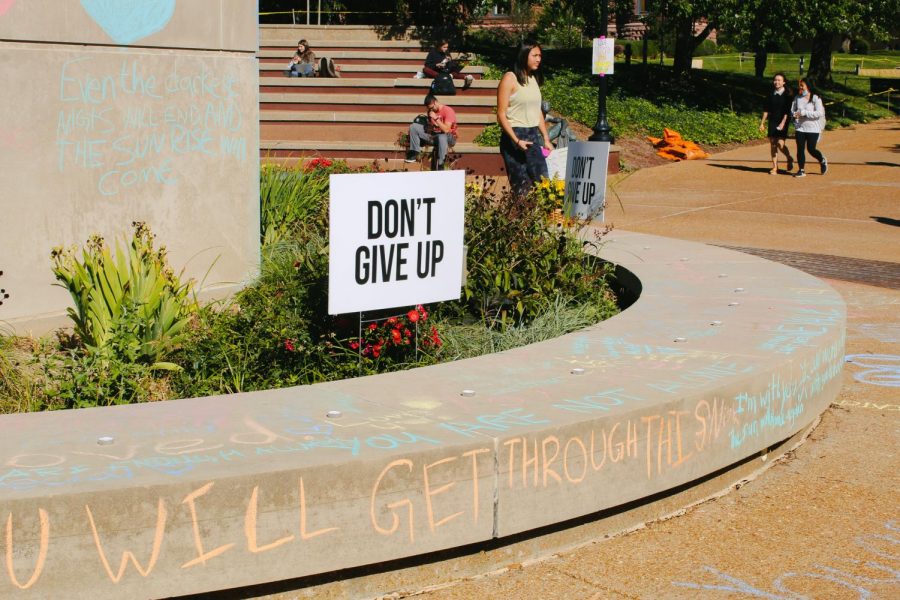Not Enough: Mental Health at SLU
I attended my first therapy session when I was fourteen years old. My mental health had been deteriorating over the past year and I was exhausted. Depression can devour you. It’s difficult to describe the mental distortion. The best I can do is this: imagine a painting drying when a cup of water spills over. The water runs down the canvas, dripping at first and then streaming. Colors begin to bleed together and wash away. The painting remains, but some sections are unrecognizable. You’re unsure how everything blended together before. This is what it feels like to struggle with mental health, buttherapy is the process that helps repaint the picture because reconstruction is possible.
The reality of mental health is that sometimes the tools one needs to improve it are difficult to find. I was privileged to have access to adequate mental health resources and a therapist who met my needs the first time I asked for help. This is not always the case. Many people struggle to find a therapist they can connect with and trust. It takes patience and time; for someone who is already struggling, the process of finding a therapist can be enough to halt their search. At Saint Louis University, we are provided mental health resources. There are counselors available and mental health hotlines to reach out to. However, our student body is saying this is not enough. A Change.org petition created by current SLU students is campaigning for a change in university policies surrounding mental health in our SLU community. Mental health assistance is not a category where “available” should be the bar. It must be exceptional. It must be inclusive. It must be comprehensive. And it must be prioritized.
Today, college students are struggling with mental health at unprecedented rates. A 2020 survey of college students conducted by the University of Michigan found that around 40% experienced depression and 34% struggled with anxiety. 1 in 7 students seriously considered suicide. Moreover, statistics show that people of color, LGBTQIA+ students and women are more susceptible to anxiety and depression. Yet, access and availability to resources has not increased to match needs. A Pennsylvania State University study concluded that while demand for mental health services on college campuses increased 30 – 40 percent, there was only a five percent increase in enrollment. SLU’s current student body is around 13,000 students. While the counseling center is in the midst of a hiring process, there are currently only four counselors taking appointments. This is a ratio of one counselor to 3,250 students. There is a staggering impossibility that each student who requires mental health assistance will receive it adequately. On top of this, SLU offers 10 free counseling sessions a year, yet research shows that therapy is most effective when attended weekly for 12 – 16 weeks. The amount of time one spends in therapy is subjective; each person who enters therapy requires different methods of counseling to suit their specific needs. Counselors should work with students to create a comprehensive plan with room for growth and adjustment. Compressing the process into a set number of sessions is ineffective as it assumes all students heal in a linear manner. Additionally, if a student feels that their counselor is not meeting their needs, they should not be required to file paperwork requesting another therapist. Students should have resources available to report an issue they have with a counselor if they believe it constitutes being addressed by administration; however, the requirement of explaining a request for a switch of counselors can deter an already hesitant student from seeking help.
The work to address and improve our campus mental health resources is complex and should be addressed with consideration and concern. This process must take precedence. A university is not thriving if its students are struggling. It is our expectation that SLU will participate in an open dialogue with students, faculty and staff to improve the ways in which we address mental health and the services we provide to care for our students. The mission of Saint Louis University is to create people for and with others. In order to participate in this mission of love, we must first be empowered to find our own peace.
Your donation will support the student journalists of Saint Louis University.






